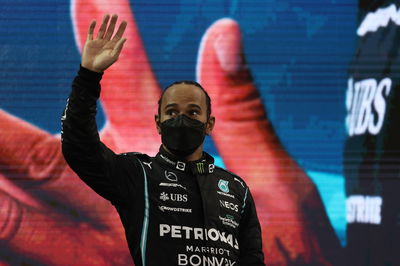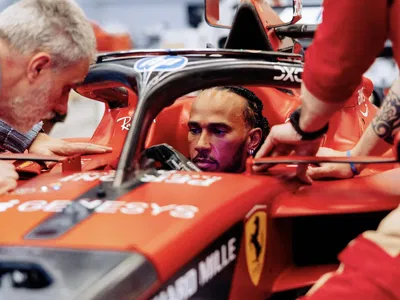Can Haas escape its F1 nadir and return to the midfield in 2022?
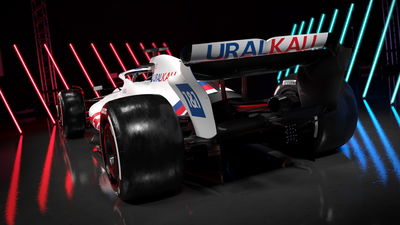
Last season marked the lowest of lows for team Haas. The American outfit took the decision not to develop its 2021 car in order to prioritise its resources for the 2022 rules revolution that has been introduced with the aim of bringing the F1 field closer together and making the racing more competitive.
Haas’ gamble left it with the slowest car on the grid and the team subsequently slumped to 10th in the 2021 constructors’ championship, with rookies Mick Schumacher and Nikita Mazepin enduring the team’s first point-less season since entering the sport in 2016.
Haas became the first team to release digital renderings of its 2022 car, the VF-22, last week and in doing so provided the first proper glimpse of what to expect from F1’s new era.
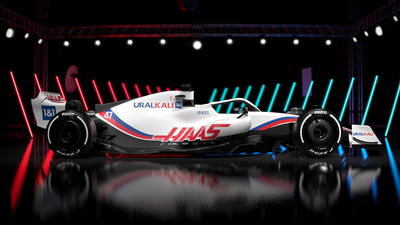
Former Ferrari chief designer Simone Resta, who is tasked with heading up Haas’ technical department at Maranello, revealed the extent of the challenge thrown up by one of F1’s biggest-ever technical regulation shake-ups.
“In terms of creating a new car, it’s probably the most complex [project] in the last 20 years,” Resta explained. “I've been really participating [in] a lot of launches in different positions, and I must confess, I can't remember such a big change in the last 20 or so years.
“So it's really a big one. There's a lot of expectation, a lot of uncertainty about what the others will do. We've been working on this so hard, for so long that all of us are really all uncertain about what to expect in the winter test.
“It has been one of the biggest changes I can remember in Formula 1 from a technical point of view. The challenge from Team Haas was also that we were really rebuilding the technical structure, with a big change. So that was a complexity added to the technical complexity of developing the new project.
“The regulations have been evolving in 2020, so in a way at the beginning of ’21 it was a fresh start for everyone. We could see that the capacity not to develop the ’21 car in-season last year has given us more time and bandwidth to focus on the ’22 car, which was clearly a plus for ourselves.”
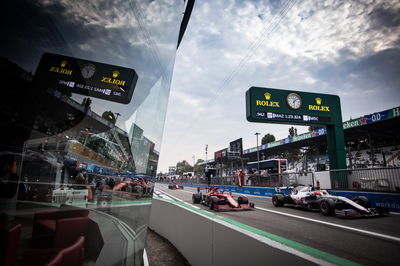
Haas continues to take advantage of its technical collaboration with engine supplier Ferrari, which is once again providing as many mechanical components as permitted by the regulations.
The team's technical division has also been boosted by the arrival of around 30-35 (as per team principal Guenther Steiner’s estimation) engineers from Ferrari, who are working directly under Resta’s watch. Technical director Resta forms part of a key trio at Haas alongside aero chief Ben Agathangelou and chief designer Rob Taylor.
“From a supply parameter point of view we try to maximise all the opportunities with Ferrari, we are the smallest team on the grid, so therefore for us it’s important to maximise the opportunities,” said Resta.
“The regulations have changed, in a measurable way between last year and this year, with new components and specifications etc. So actually you can purchase from Ferrari fewer things in slightly different parameter, but in short we are trying to take everything possible within the regulations.”
Given Haas’ approach of effectively sacrificing its 2021 development to boost its chances for 2022, the goals have naturally shifted. Instead of being a distant hope, points will become the bare minimum target.
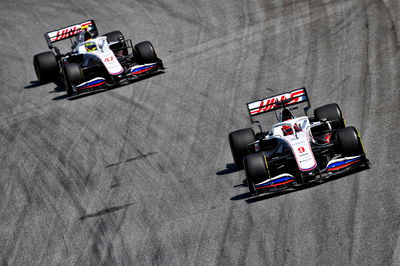
While Resta acknowledges there is a greater expectation for Haas to perform this season, he insists is not feeling pressure of the task at hand.
“I try to live day-by-day and try to enjoy the job,” he said. "We live just once and I try not to think about pressure or whatever.
“I really try to enjoy and do the maximum and boost our performance, work hard and I don’t think about anything else. It’s the only thing that matters, I try to bolt performance on the car, try to enjoy it and then start the day after doing another step like that. There’s a lot of expectations on the new project, a lot of hard work.
“As a team we are a very young organisation, just rebuilt one year ago, and I’m pretty sure we will be able to show our true potential in 2022 and also another step in 2023 because once we are able to work together, understand and improve day-after-day I’m pretty sure we can deploy more steps for team Haas.”
So will the VF-22 be the car to drag Haas out of survival mode and help it rediscover the kind of performance levels it enjoyed back in 2018?
“We’ve had good cars in ’18, even in ’16 and ’17 for a new team we had pretty good cars, so I just see similarities to that time,” said Steiner. “That is the only thing I can judge the performance, what I expect from the car.
“I’m cautiously optimistic because I see how Simone and his group developed the car over the last year, how hard they worked on it and the results from the wind tunnel, the improvements they do each session.
“It’s the only thing I can compare and that makes me cautiously optimistic, but to say we will be in the midfield, I don’t know. I obviously have faith we will be there but I don’t know what the other ones are doing, so we have to wait a little bit longer.
“We had two tough years but what kept me going was actually what the people did in ’21 back in the design office and in the aero group [for 2022].”
